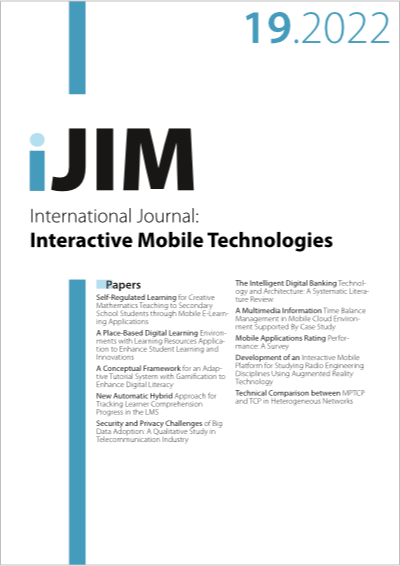Technical Comparison between MPTCP and TCP in Heterogeneous Networks
DOI:
https://doi.org/10.3991/ijim.v16i19.35299Keywords:
TCP, MTCP, IETF, CWNDSim, BLIA, OLIAAbstract
Multipath TCP (MPTCP) is a project that has proposed by IETF group to allow packet streams to be separated across multiple sub-flow paths. MPTCP brings a great benefit in throughput, reliability, and fairness. However, MPTCP can be implemented in a little Linux distribution where it requires compiling and installing to become available for an actual and simulation scenario. In the paper, the performance analysis and evaluation results in both TCP and MPTCP are achieved through PC computer connected to Wi-Fi access point and 3G in heterogeneous networks. The simulation results prove that MPTCP performs better than single-path TCP for heterogeneous networks. All experiments over MPTCP and TCP leads to same results in terms of the throughput in heterogeneous networks. In this paper, four congestion control methods are implemented in the kernel and compared with each other understand the behaviors of those methods. The result of the experiment proves that Linked Increased Algorithm (LIA) has the advantage over the others in light data traffic while Balanced LIA (BLIA) has the advantage the others when there is heavy data traffic
Downloads
Published
How to Cite
Issue
Section
License
Copyright (c) 2022 Haider TH.Salim ALRikabi; Ahmed Saleem Abbas

This work is licensed under a Creative Commons Attribution 4.0 International License.



